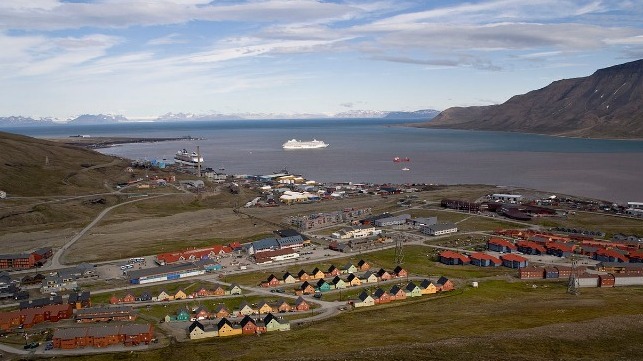Norway Moves to Ban Carriage of HFO in Waters Near Svalbard

The government of Norway has proposed to ban the use or carriage of heavy fuel oil in waters off Svalbard, extending a prohibition that currently applies to a limited number of protected areas in the archipelago.
"Svalbard has a very vulnerable environment and large, distinctive wilderness areas. Therefore, the government has set high environmental goals for Svalbard, which means that the risk of damage to the environment must be low. A ban on heavy oil that applies to the whole of Svalbard is a natural step to take to reduce this risk," said Minister of Climate and Environment Sveinung Rotevatn in a statement.
The regulation would require vessels to bunker with marine gas oil or diesel prior to transiting Svalbard's waters (and encourages a transition to "green" alternatives). Lighter fuels like MGO dissipate more quickly in the marine environment, unlike HFO, which can linger for years in the Arctic cold. HFO carries a particular risk for ice-bound regions: no definitive response technique has yet been found to clean up a heavy fuel oil or crude oil spill in ice.
The prohibition will primarily affect large cruise ships and the cargo ships that carry supplies to and from the port of Longyearbyen. The Ministry of Climate and Environment noted that fuel costs will rise for the vessel operators, but the clean-up costs and economic costs in the event of a spill will be reduced. The proposal includes a two-year transition period for merchant vessel traffic to Longyearbyen and Barentsburg, and this will be reassessed after a period of consultation.
At present, an HFO carriage ban is in effect for Nordvest-Spitsbergen National Park, Forlandet National Park and Sør-Spitsbergen National Park, along with the Nordaust-Svalbard Nature Reserve and Søraust-Svalbard Nature Reserve. The ministry said that it seeks to expand the ban because these areas could still be damaged if an HFO fuel spill occurred outside of their boundaries.
The Clean Arctic Alliance, an NGO which advocates for an HFO ban throughout the Arctic, welcomed the Norwegian government's announcement and called on other nations to follow suit.

that matters most
Get the latest maritime news delivered to your inbox daily.
"Norway leads the way amongst Arctic nations in getting rid of HFO from Arctic waters, and is demonstrating international leadership by going above and beyond the weak ambitions of Arctic HFO ban currently being considered by the International Maritime Organization,” said Clean Arctic Alliance lead advisor Dr. Sian Prior in a statement.
The IMO has drafted an Arctic HFO regulation, but the International Council on Clean Transportation assesses that its text will have a limited effect on shipping, with a large majority of Arctic HFO users permitted to continue operations unhindered through the 2020s.
